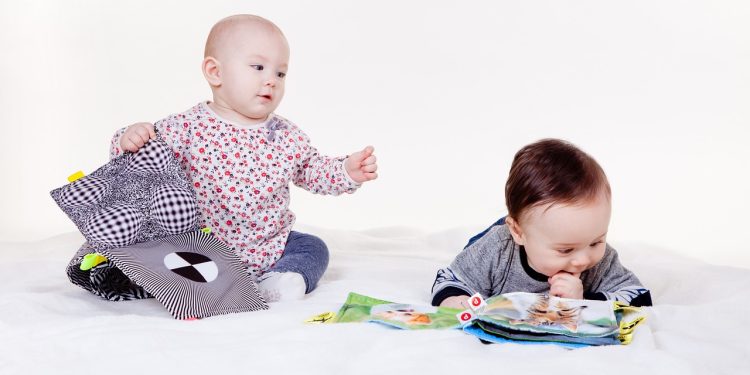Bringing a new baby home is an exciting milestone for the entire family, but it can also bring about challenges, particularly when it comes to older siblings. The arrival of a new sibling can stir up feelings of jealousy, insecurity, and confusion for older children who are used to having their parents’ undivided attention. Managing sibling jealousy requires empathy, patience, and intentional efforts to help older children feel valued and secure in their role within the family. This essay explores practical strategies for managing sibling jealousy when bringing home a new baby, helping to create a harmonious and loving environment for all members of the family.
Understanding Sibling Emotions
The first step in managing sibling jealousy is understanding the emotions that older siblings may be experiencing. For a child who has been the center of attention, the arrival of a new baby can feel like a significant shift. They may feel that their place in the family is being threatened or that they are no longer as important to their parents. These feelings are completely normal, and it is important for parents to acknowledge and validate them.
Parents should encourage open communication, allowing older siblings to express their feelings about the new baby. Whether they are excited, nervous, or even upset, giving them the space to share their emotions without judgment can help them feel heard and understood. Validating their feelings and reassuring them that it is okay to feel this way helps build trust and creates a supportive environment where they feel valued.
Involving Siblings in Baby Care
One of the most effective ways to manage sibling jealousy is to involve older siblings in caring for the new baby. Giving them age-appropriate responsibilities can help them feel included and important. Simple tasks like fetching diapers, picking out baby clothes, or singing to the baby can make older siblings feel that they are contributing to the well-being of the family.
When assigning tasks, it is important to frame them as special jobs that only they can do. This helps older siblings feel proud of their role and fosters a sense of responsibility. Positive reinforcement, such as praising their efforts and acknowledging their contributions, goes a long way in making them feel valued and appreciated. By involving them in baby care, parents can help older siblings develop a sense of connection and pride in their role as a big brother or sister.
Creating One-on-One Time
While it is important to involve older siblings in caring for the new baby, it is equally important to ensure that they still receive individual attention from their parents. The arrival of a newborn often shifts the focus to the baby, which can make older children feel left out or neglected. Setting aside dedicated one-on-one time with each older sibling can help them feel seen and valued.
These one-on-one moments can be as simple as reading a bedtime story, going for a walk, or playing a favorite game. The key is to make sure that older siblings have opportunities to spend quality time with their parents, without the presence of the new baby. This helps reassure them that they are still an important part of the family and that their parents’ love for them has not changed.
Celebrating the Role of the Older Sibling
Helping older siblings embrace their new role can also help mitigate feelings of jealousy. Parents can celebrate their new role as a big brother or sister by emphasizing how special and important they are to the family. Creating positive associations with their role can help older siblings feel excited and proud rather than threatened by the new addition.
Parents can involve older siblings in fun activities that highlight their role, such as making a “Big Sibling” certificate, creating a scrapbook of their journey as an older sibling, or planning a special “big sibling day” where they get to choose an activity or treat. Celebrating their role helps older siblings feel valued and reminds them that they are an integral part of the family.
Encouraging Gentle Interactions
Older siblings are often eager to interact with the new baby, but they may need guidance on how to do so safely and gently. Teaching older children how to hold the baby, how to be gentle while touching, and how to recognize the baby’s cues can help prevent accidents and foster positive interactions. Parents should model these behaviors and offer gentle reminders as needed.
Encouraging older siblings to talk or sing to the baby, stroke their hands, or show them toys are great ways to build a bond while keeping interactions safe. These gentle interactions help older siblings feel connected to the baby while also reinforcing the importance of being caring and careful. Positive experiences with the baby can help reduce feelings of jealousy and foster a sense of love and connection.
Addressing Behavioral Changes with Empathy
It is common for older siblings to exhibit behavioral changes when a new baby arrives. They may act out, become more clingy, or regress to behaviors they had previously outgrown, such as thumb-sucking or wanting a bottle. These behaviors are often a response to the changes in their environment and are a way for them to seek attention or reassurance.
Addressing these behaviors with empathy is crucial. Rather than reacting with frustration, parents should try to understand the underlying emotions driving the behavior. Offering extra comfort, reassurance, and patience can help older siblings feel secure. It is also important to avoid comparing them to the baby or making them feel that their behavior is wrong. Instead, focus on providing positive reinforcement for good behavior and offering extra love and support during this period of adjustment.
Maintaining Routines and Stability
Maintaining routines can provide a sense of stability for older siblings during a time of change. Babies often bring a level of unpredictability into the household, but keeping some aspects of the older child’s routine consistent can help them feel more secure. Whether it’s maintaining their regular bedtime routine, keeping up with their favorite activities, or ensuring that mealtimes remain the same, consistency can help older siblings feel that not everything has changed.
Stability in routines helps older siblings feel a sense of control in an environment that may feel different or uncertain. It reassures them that while some things have changed with the arrival of the new baby, other aspects of their life remain constant and dependable.
Seeking Support from Extended Family
Extended family members, such as grandparents, aunts, and uncles, can also play an important role in helping older siblings adjust to the arrival of a new baby. They can offer extra attention, take the older child on special outings, or spend quality time with them while the parents are occupied with the newborn. This additional support can help older siblings feel valued and remind them that they are still an important part of the family.
Involving extended family members in providing support can help alleviate some of the pressure on parents and ensure that older siblings receive the attention they need. It also helps strengthen family bonds and creates a sense of community, which can be incredibly comforting for older siblings during a time of change.













